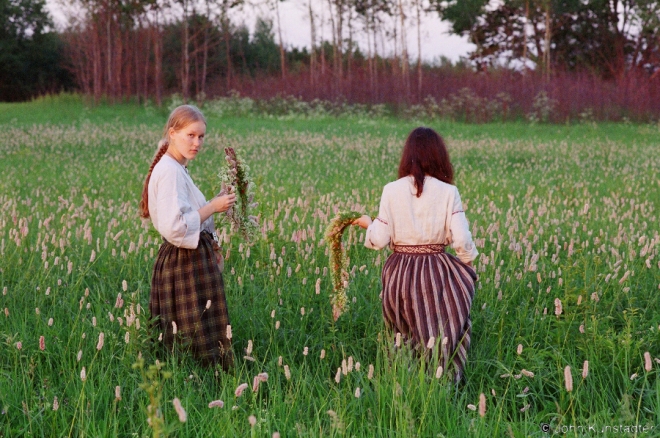Kupalinka (Купалінка), part of an opera written in 1921 by Mikhas’ Charot with music by Uladzimir Terauski, is one of the best-known Belarusian folk songs. It tells of a girl’s weaving of flower wreaths for Midsummer’s Night (Kupal’lje) and her yearning for love. At the same time, as with all other great folk music, there are other sub-texts and cultural allusions — a mother watching her daughter come of age and begin to long for a husband; innocence and wistfulness; yearning and pain as symbolized by the rose; the pre-Christian Midsummer Night’s festival, central to Belarusian culture; the darkness and mystery of night and the expected bonfire of Midsummer’s Night:
“She weaves flower wreaths, she weaves flower wreaths,
While tears flow…”
Charot and Terauski were murdered by Soviet authorities during the Stalinist mass murder of Belarus’ cultural elite in 1937 and the Soviet authorities removed the song from the official repertoire for decades thereafter.
Now, since the falsified presidential elections of August 9, 2020 and subsequent savagery by enforcement authorities against peaceful citizens, the song has become emblematic of the aspiration of the Belarusian nation for change and rule of law in dignity.
Kupal’lje celebration, Chars’ts’vjady 2006.
Купальле, Чарсьцьвяды 2006 г.
